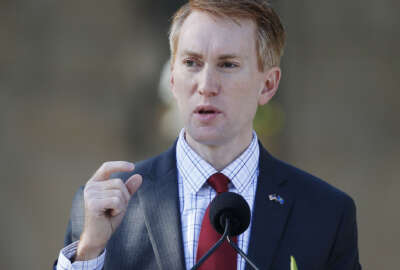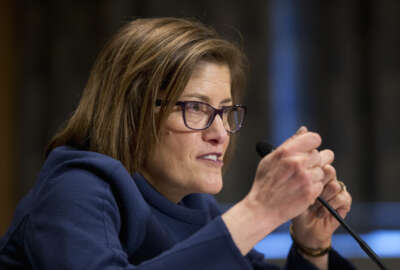
As Obama admin winds down, OPM calls for future civil service reform
The Office of Personnel Management says it's spent the past eight years working within the confines of current laws and regulations to modernize the federal...
The past eight years of new hiring initiatives, workplace flexibility programs and security clearance reforms from the Office of Personnel Management have put the pieces in place for a more modern government personnel system, the agency said as it looked back on its accomplishments during the Obama administration.
But OPM says future administrations should double down and begin discussing more comprehensive civil service reform.
“We need to continue our work to enhance the execution of the current personnel system and set the stage for more comprehensive reforms that address structural challenges to improved governmentwide performance,” Beth Cobert, the agency’s acting director, wrote in a Jan. 5 cabinet exit memo.
Specifically, OPM suggested that Congress bring together lawmakers, representatives from the President’s National Council on Federal Labor-Management Relations, members from industry and academic experts to develop new recommendations to modernize personnel policies.
President Barack Obama proposed similar commissions to study civil service reform in previous budget requests.
Future administrations should also consider expanding and making the Hiring Excellence campaign permanent, the agency said. OPM launched the campaign last January, which sent agency officials around the country to better educate hiring managers and human resources specialists about the authorities they already have to recruit and retain talent.
OPM also suggested Congress consider targeted legislation to help agencies more quickly bring in students, recent graduates and young talent with mission critical skills.
These reforms are important, OPM said, as the agency acknowledged that government can no longer expect that top talent will begin and end their entire professional careers in one place.
“Rather than focusing on ways to keep employees for their entire careers, we should embrace modern reality and seek to make federal service a coveted stop in every professional’s successful career trajectory,” Cobert wrote.
OPM’s work over the past eight years reflects a slow shift in thinking, as the federal civil service looks much different from when it was created, the agency said. Most jobs were clerical positions, OPM said. Now, roughly 25 percent of federal employees have an advanced degree and 70 percent have a bachelor’s degree.
Some agencies, such as the Homeland Security Department, have acknowledged that the next generation of talent will expect a more modern personnel and benefits system out of its employers.
But Congress has yet to institutionalize such thinking with concrete legislation, and innovative recruitment strategies are still largely happening in pockets throughout government.
But OPM has made measured improvements, which could serve as the foundation for future civil service reforms, the agency said.
For example, OPM began a complete overhaul of USAJobs.gov in an effort to debunk common hiring myths and better respond to applicants’ complaints and frustrations.
It’s collecting more data and feedback from agencies and their employees and disseminating it to department leaders to help them make better decisions. OPM launched UnlockTalent.gov in recent years, which agency leaders can use to access Federal Employee Viewpoint Survey and other engagement data.
“Decisions about people — hiring, cultivating, training and engaging the workforce — are not tasks to be delegated,” Cobert said. “A modern personnel system will need leaders who take full ownership over the management of their staffs and see it as core to fulfilling their organization’s mission.”
Other projects
While developing more targeted recruitment strategies has certainly been one of OPM’s top priorities in recent years, the agency said continuing the momentum it started on security clearance reform should be another focus for the new administration.
OPM and the Office of Management and Budget announced nearly one year ago plans to stand up a new agency to assume responsibility of the federal security clearance process.
Now in 2017, the National Background Investigations Bureau has a designated director, new contracts with industry partners to begin performing more security clearance investigations and the beginning legwork in motion with the Defense Department for a modern IT system.
“The formation of NBIB creates a blueprint for modernization efforts,” Cobert said. “Now, the hard work of implementation begins.”
Cobert encouraged the new administration to move forward on developing policies and IT systems necessary to support continuous evaluation.
More modern IT systems also extend past OPM’s work on security clearances and to nearly every other aspect of the agency, from OPM’s retirement services to its human capital management technology.
That work should continue, OPM said, into future administrations.
“This will take a commitment from senior leaders across the federal government, including OPM, to expand and scale the new tools and processes across agencies,” Cobert said. “OPM should also continue its use of data to improve analytical capabilities across its business processes to better identify the needs of its customers, determine which areas are ripe for improvement and construct plans for how best to use limited resources for maximum impact.”
Copyright © 2025 Federal News Network. All rights reserved. This website is not intended for users located within the European Economic Area.
Nicole Ogrysko is a reporter for Federal News Network focusing on the federal workforce and federal pay and benefits.
Follow @nogryskoWFED
Related Stories





